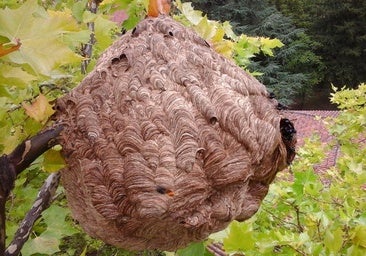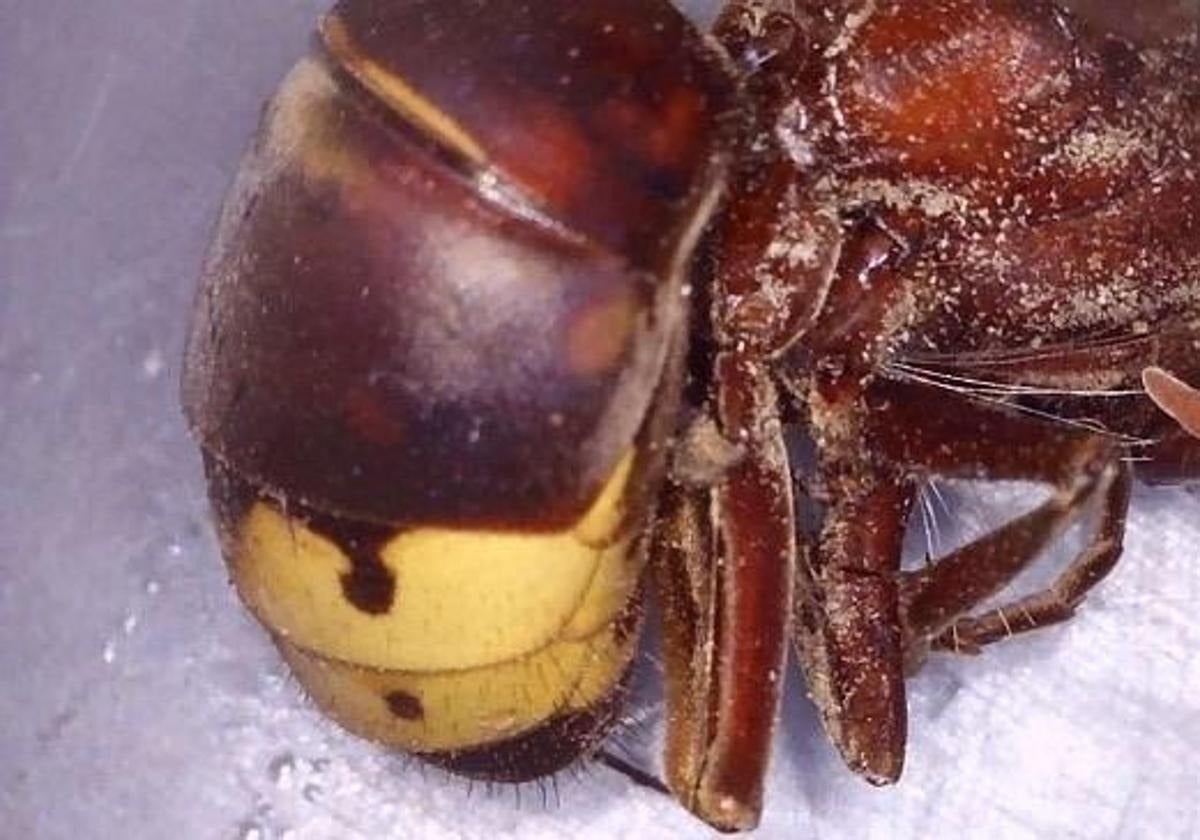Monday, 3 November 2025, 19:21
The Asian hornet has been detected for the first time in Spain’s Granada province during a routine inspection as part of the ragweed beetle (Euwallacea fornicatus) surveillance programme.
The discovery, considered the “first official record” of the species in Granada province, was made by biologist Ignacio Henares Civantos, technical advisor to the Andalusian regional government’s plant health department, on an avocado plantation in Motril. Henares identified the insect after finding it in one of the traps installed as part of the phytosanitary control programme.
No visible damage has been observed on the farm, but experts warn that if the species becomes established in the area, it could spread to other farms on the coast.

The Asian hornet has already been detected in Cadiz, Malaga, Seville, Huelva, Cordoba, Jaén and Almeria. “We were the only Andalusian province where no specimens had been confirmed,” explained Henares.
It is native to western Asia and was first detected in Europe in 2010 in Italy. It was later detected in Algeciras in Spain in 2018. Since then, its spread has been constant and rapid throughout Andalucía.
The insect measures between 17 and 21 millimetres, although queens can reach up to 27 millimetres. It is distinguished by its reddish-brown head and thorax, its abdomen with two intense yellow bands and two black spots, and a characteristic yellow ‘mask’ on its face.
Risks
According to experts, Asian hornets prefer to build their nests on the ground or in urban structures: holes in walls, roofs, attics, warehouses or even gardens. This behaviour increases the risk of contact with humans.
The impact of the Asian hornet is manifold. On the one hand, it poses a threat to public health, as its sting is painful and potentially dangerous, especially for people with allergies, and can cause severe reactions and even anaphylaxis.
“It is an insect that can live very close to humans, in urban or coastal environments, where there is water, swimming pools or garden areas. The risk of being stung increases in summer, when the colonies are most active,” explained the technician. Health authorities recommend not approaching or attempting to destroy nests, as the insect is very territorial and can attack in groups.
The second major problem is the impact on beekeeping. The Asian hornet is a natural predator of bees. During the breeding stage, the workers hunt adult bees to feed their larvae. This causes a significant reduction in honeybee populations and, consequently, a decrease in honey production and natural pollination of crops.
The Asian hornet can also affect agriculture, as it feeds on ripe fruits such as mangoes, figs, grapes and peaches. When penetrates it them it damages the fruit and renders it unsuitable for sale, causing economic damage to producers.
If you spot a large hornet or a suspicious nest, you should immediately notify your local town hall, the Andalusian regional government’s plant health service or the relevant environmental authorities.
